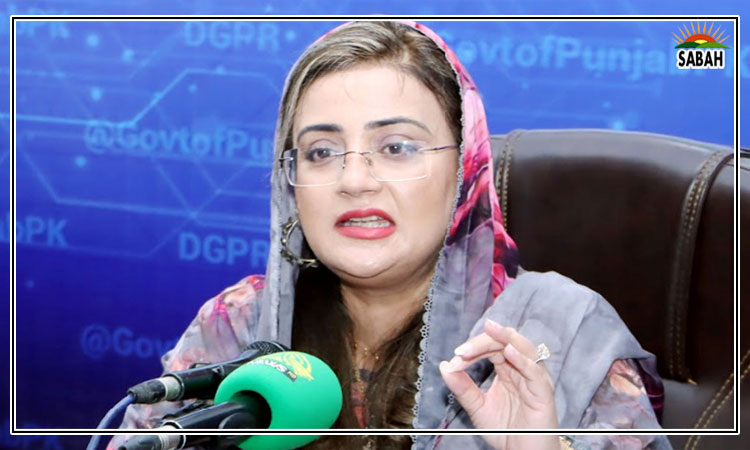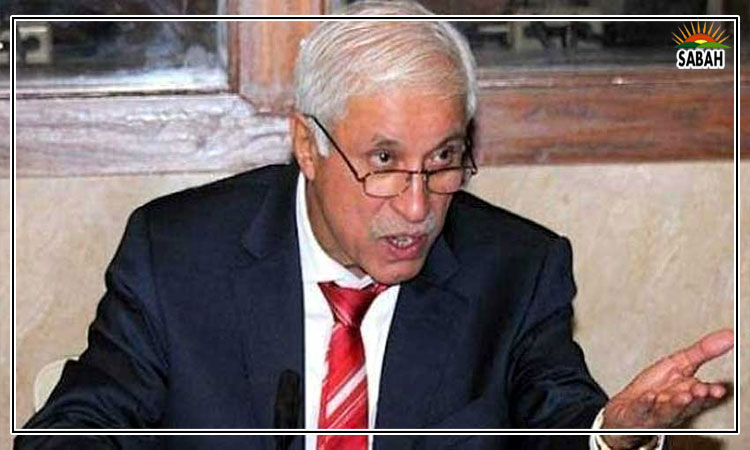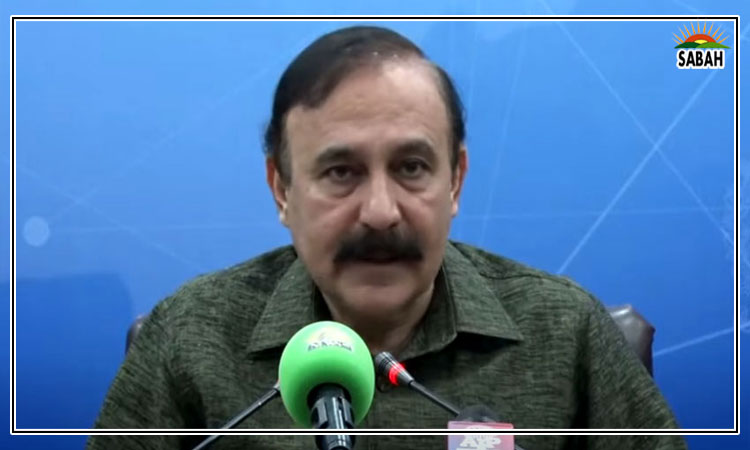Sherry Rehman lauds RAPID project’s efforts to bolster resilience & build adaptive capacity in some of the country’s most vulnerable regions regarding climate change
ISLAMABAD, Sep 30 (SABAH): Senator Sherry Rehman delivered a compelling address as Chief Guest at the RAPID: The Resilient Reflections event, she called for a renewed commitment to localized climate resilience and disaster risk reduction strategies, highlighting the urgent need to prepare Pakistan’s most vulnerable communities for the mounting pressures of climate change. Organized by Islamic Relief Pakistan in collaboration with the Asian Development Bank (ADB) and the National Disaster Risk Management Fund (NDRMF), the event spotlighted the impact of climate volatility on communities living at the frontline of fragility in Balochistan and Khyber Pakhtunkhwa.
Senator Rehman opened her address by reminding the audience of the grim realities that have become a daily struggle for many communities, “Climate change is not a distant reality for these communities—it is an immediate and unrelenting force, transforming their lives and livelihoods,” she stated. “Today’s partnership is about equipping people vulnerable to unpredictable futures to stop fearing the morning and the morning after. It is about rebuilding not just their homes but restoring a sense of predictability, resilience, and hope in their lives.”
Drawing attention to the staggering impact of climate change on Pakistan’s natural resources, Senator Rehman noted that the 2022 floods, which left one-third of the country submerged and displaced millions, were a harrowing reminder of the accelerating impacts of global warming. “We are now seeing natural resource stress and scarcity pushing communities to the brink, where survival is no longer a given. From the deserts of Chagai to the mountainous terrain of Koh-e-Sulaiman, entire ecosystems are being altered, leaving livelihoods and cultures hanging by a thread. This is not an issue that we can simply mitigate with short-term aid. It demands robust, sustained investment in disaster preparedness, adaptation, and community-led resilience.”
Senator Rehman praised the RAPID project’s efforts to bolster resilience and build adaptive capacity in some of the country’s most vulnerable regions. “With temperatures soaring to record highs over the last four years, living conditions in parts of Pakistan now resemble life inside an oven. Yet, the work being done here is showing that with the right knowledge, tools, and resources, people can break the cycle of despair and live with dignity amidst these changes.”
Despite these efforts, Senator Rehman pointed out that disaster risk reduction and climate adaptation remain alarmingly low on the international agenda. “While countries continue to pledge support at global forums, local solutions—those that are community-based, effective, and proven—are still not receiving the attention they deserve. It took 28 climate conferences before the term ‘fossil fuels’ even entered the climate discourse, yet fossil fuel emissions are the single most significant driver of the catastrophic weather events that we now see globally,” she asserted.
“Even now, as we approach COP29, Pakistan is experiencing its highest recorded temperatures, pushing ecosystems and communities to their limits. The critical 1.5°C climate goal is an unattainable mirage. It’s no wonder that we hear warnings of a global meta-trend where entire regions may become uninhabitable if we fail to act decisively,” Senator Rehman warned, urging global leaders to move beyond token commitments.
She went on to emphasize that local responses, rooted in the lived experiences of those most affected, should be the bedrock of any effective climate action strategy. “Community-based solutions can cut through the abstract nature of climate science and make resilience a tangible reality. But for that to happen, we need to see a triangulation of efforts—where local solutions are supported by national policies and bolstered by international cooperation.”
Despite the serious challenges, Senator Rehman offered a message of resilience and optimism, noting the innate human capacity to adapt and innovate in the face of adversity. “It is human nature to not succumb to gloom and doom. Our people have shown incredible strength and determination in the face of natural disasters, and we must now match that spirit with policies and programs that empower them to rebuild their lives with dignity,” she said.
“From Gilgit-Baltistan to Chagai, communities have demonstrated that hope is the most critical resource we have. It is what keeps people going and enables them to envisage a better future. That is why the work we are doing today is so important—it’s not just about responding to emergencies but providing a lifeline that allows communities to thrive despite the challenges they face.”
Senator Rehman also spoke about the need to leverage new technologies to address climate challenges more effectively. “Our youth are pioneering solutions in green tech and climate-smart agriculture, showing that the next generation is ready to lead the way. We need to provide them with the platforms and partnerships to accelerate these innovations,” she stated.
In her closing remarks, Senator Rehman reiterated the importance of a unified approach to addressing climate resilience and disaster preparedness. “It is imperative to build a coalition of partnerships that not only respond to climate emergencies but also enable communities to foresee and prepare for the unpredictable nature of future challenges,” she said.
“The RAPID project stands as a testament to what can be achieved through compassionate collaboration and commitment. As we look ahead, it is critical to ensure that local voices, knowledge, and solutions are at the forefront of our strategies. This is not about short-term fixes but about creating a sustainable system of support that empowers people to face the future with confidence,” Senator Rehman concluded.
The RAPID project, funded by the Asian Development Bank and supported by the National Disaster Risk Management Fund, is currently working in the most climate-vulnerable areas of Balochistan and Khyber Pakhtunkhwa to enhance community resilience through tailored capacity-building programs, early warning systems, and sustainable livelihood strategies. With a focus on fostering local ownership and cross-sectoral collaboration, the project is setting new benchmarks for climate adaptation and resilience in Pakistan.












